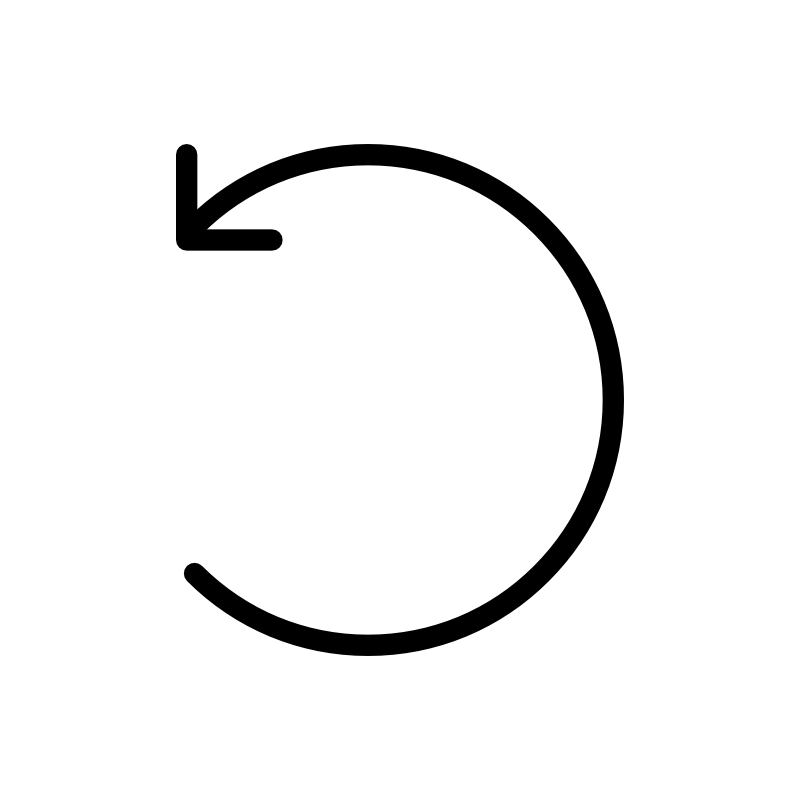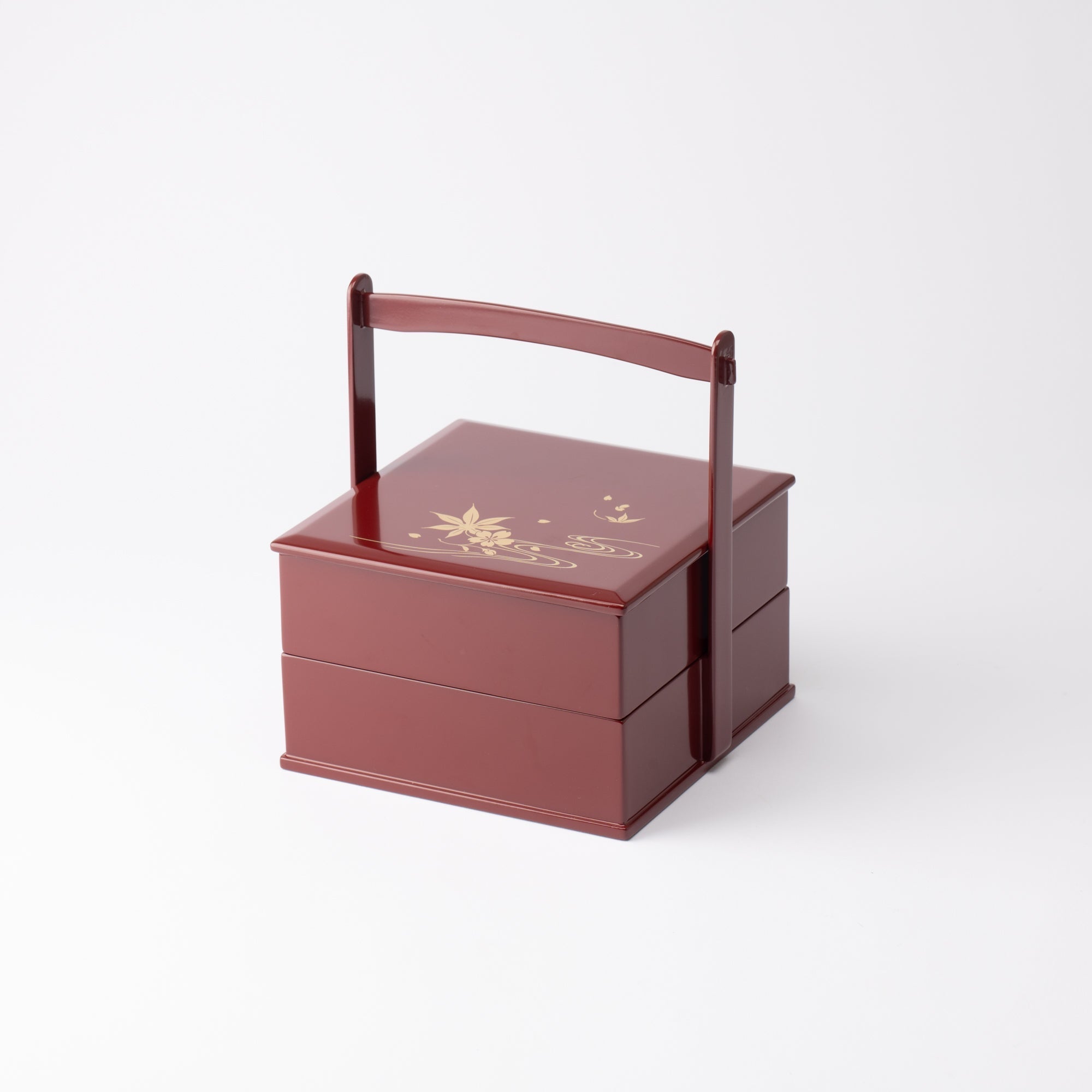
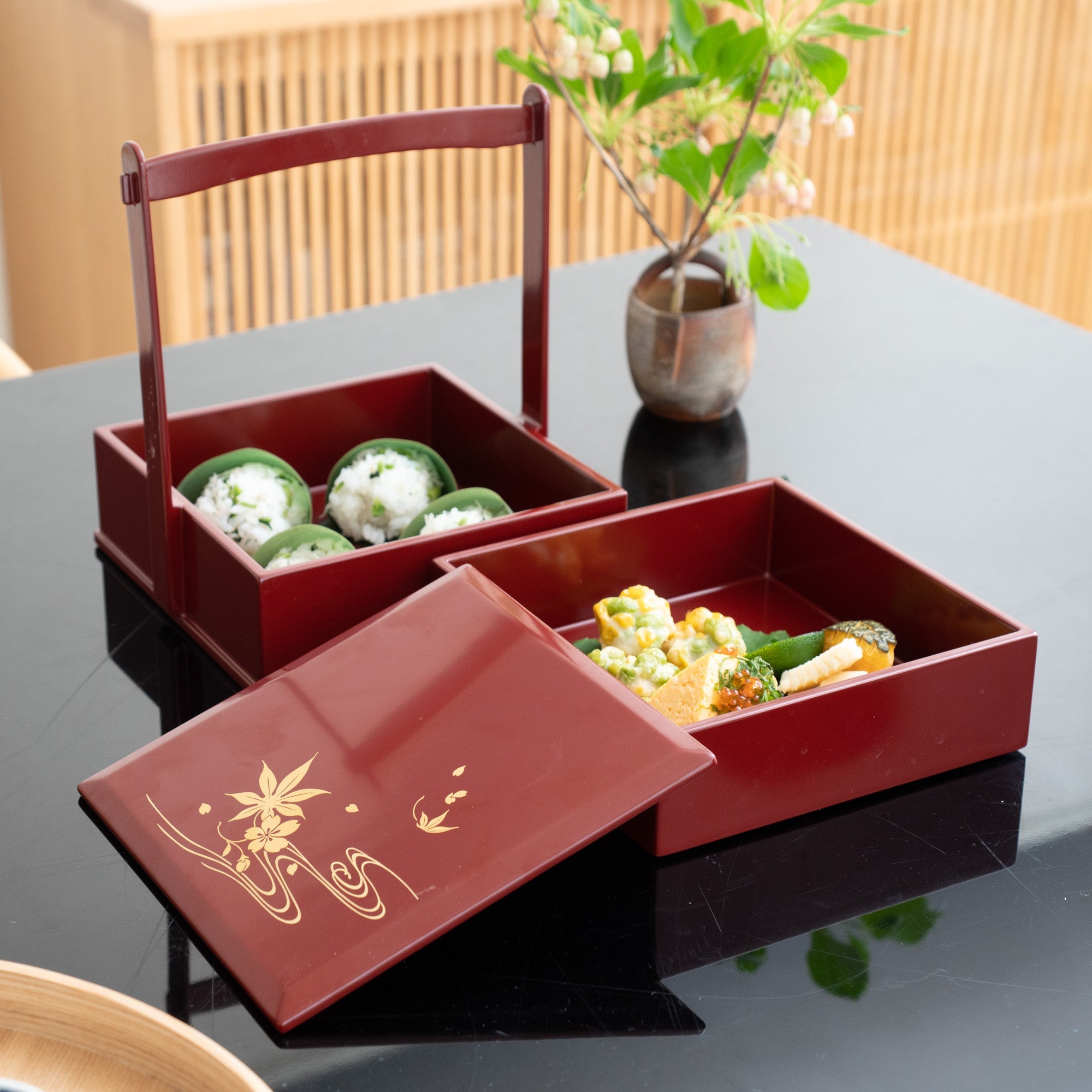
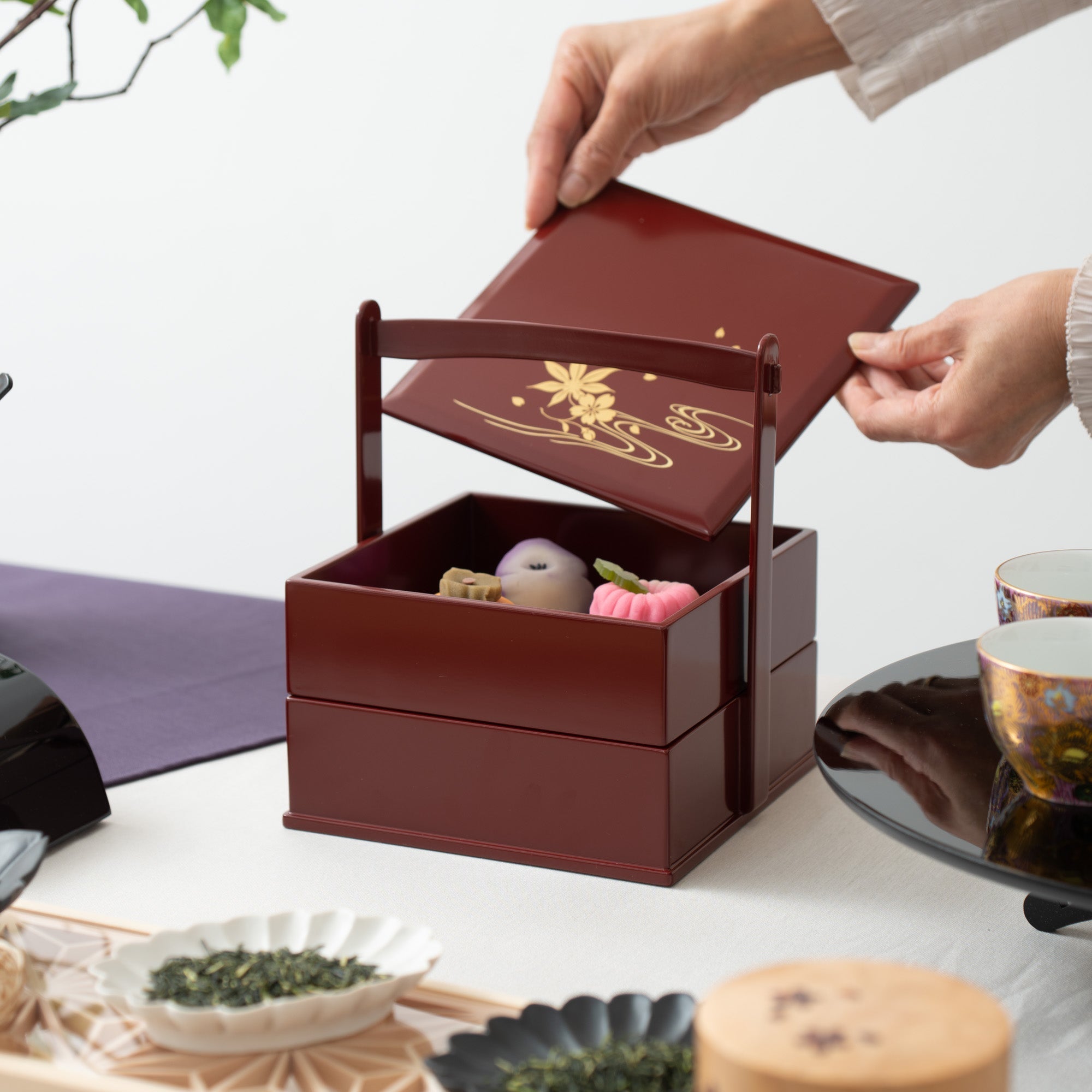
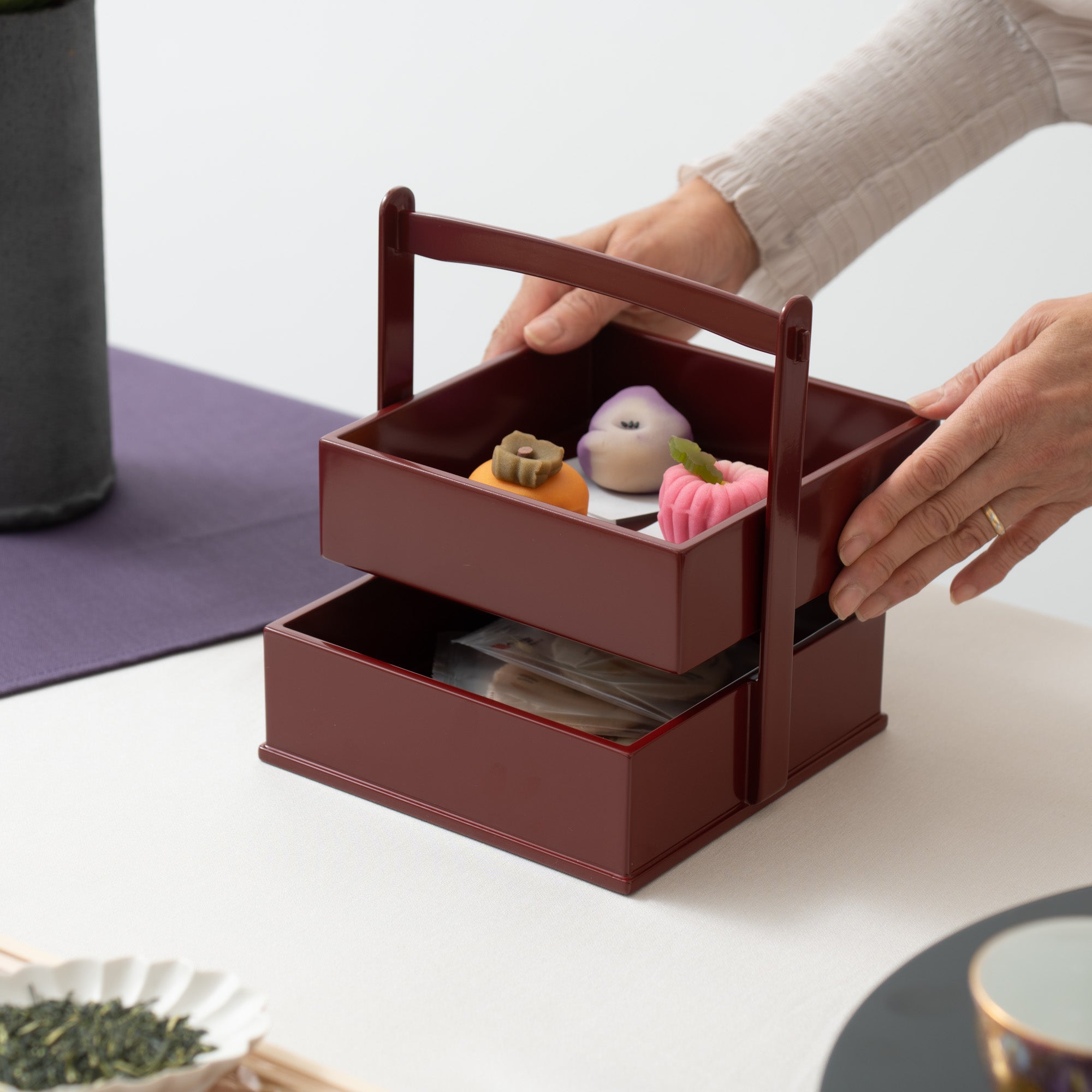
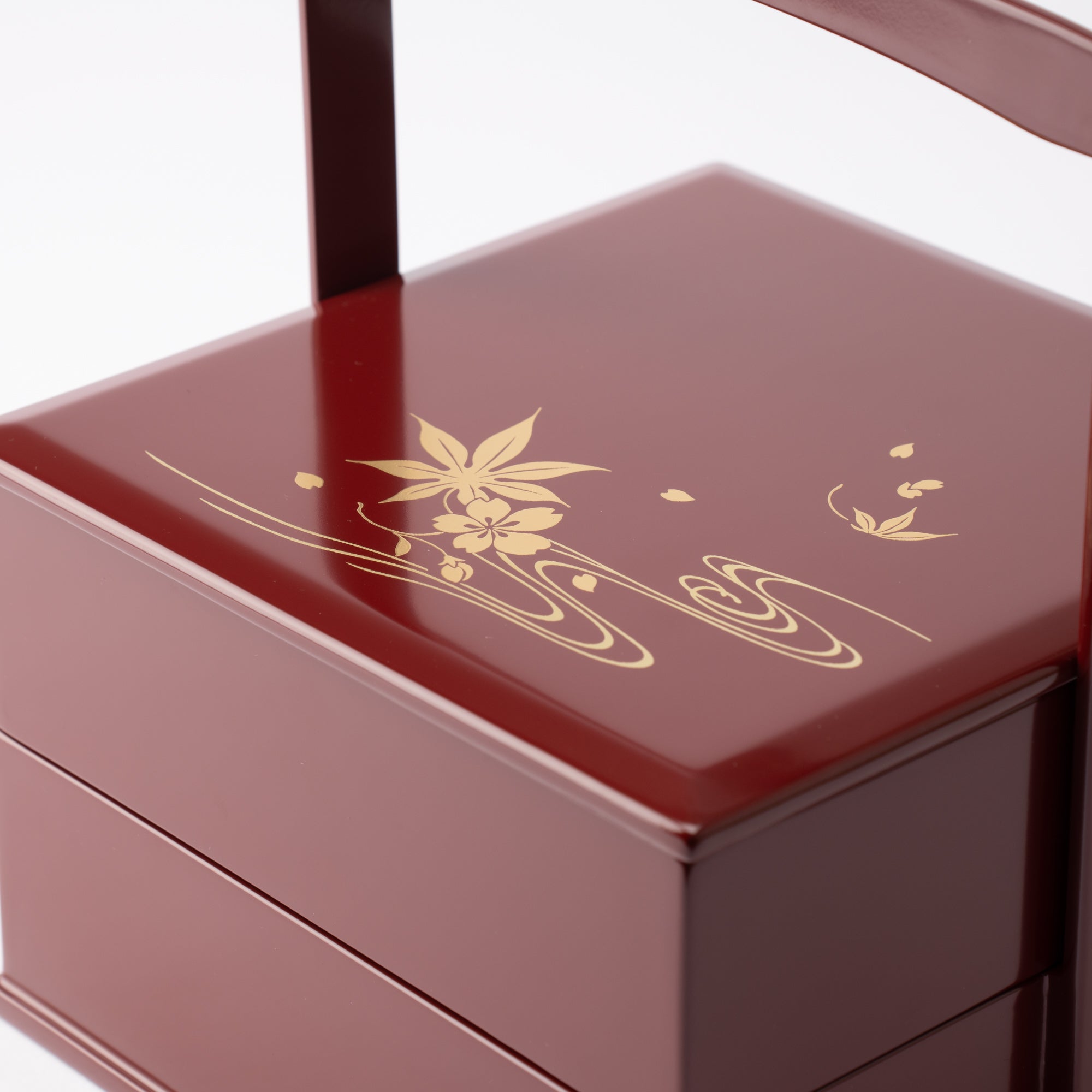
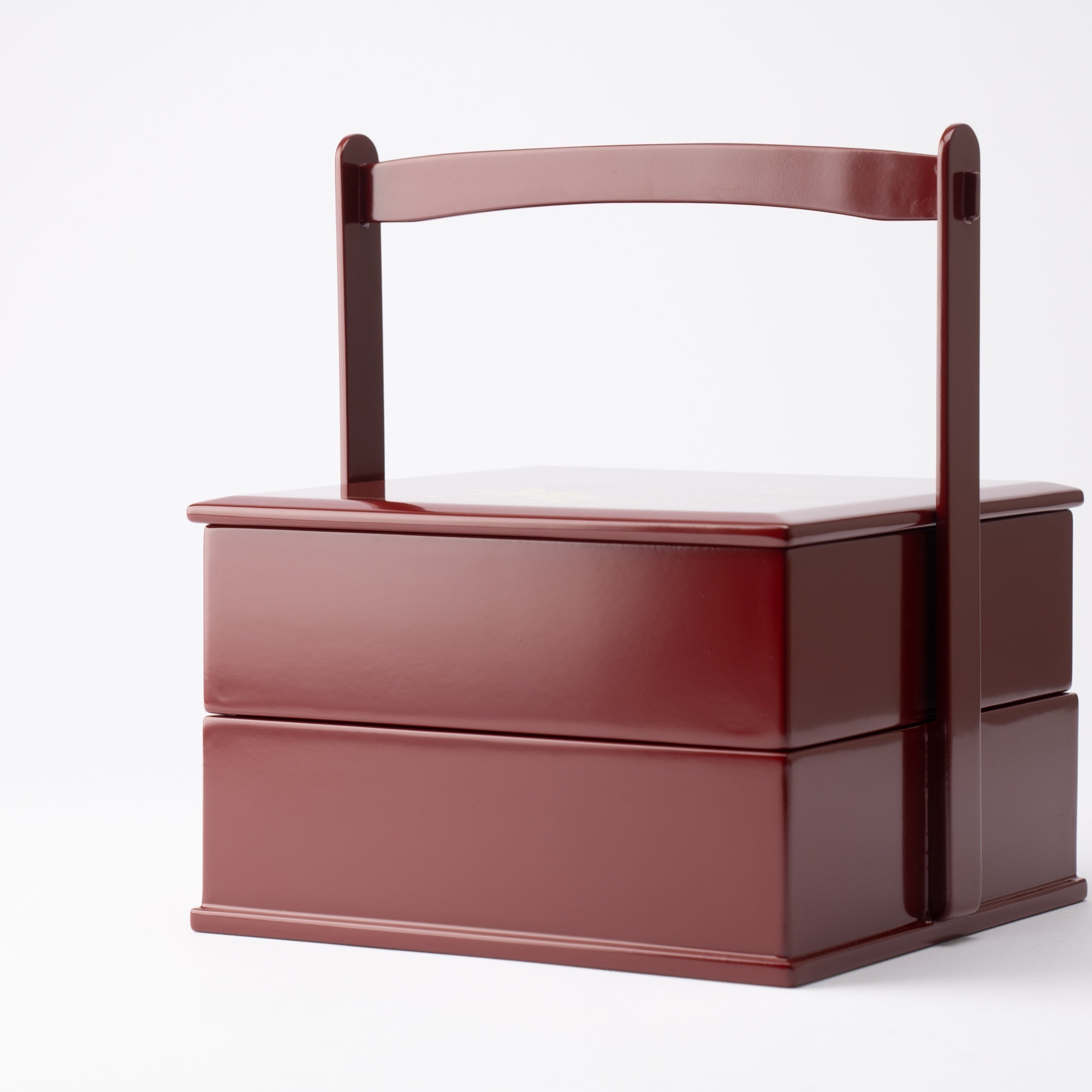
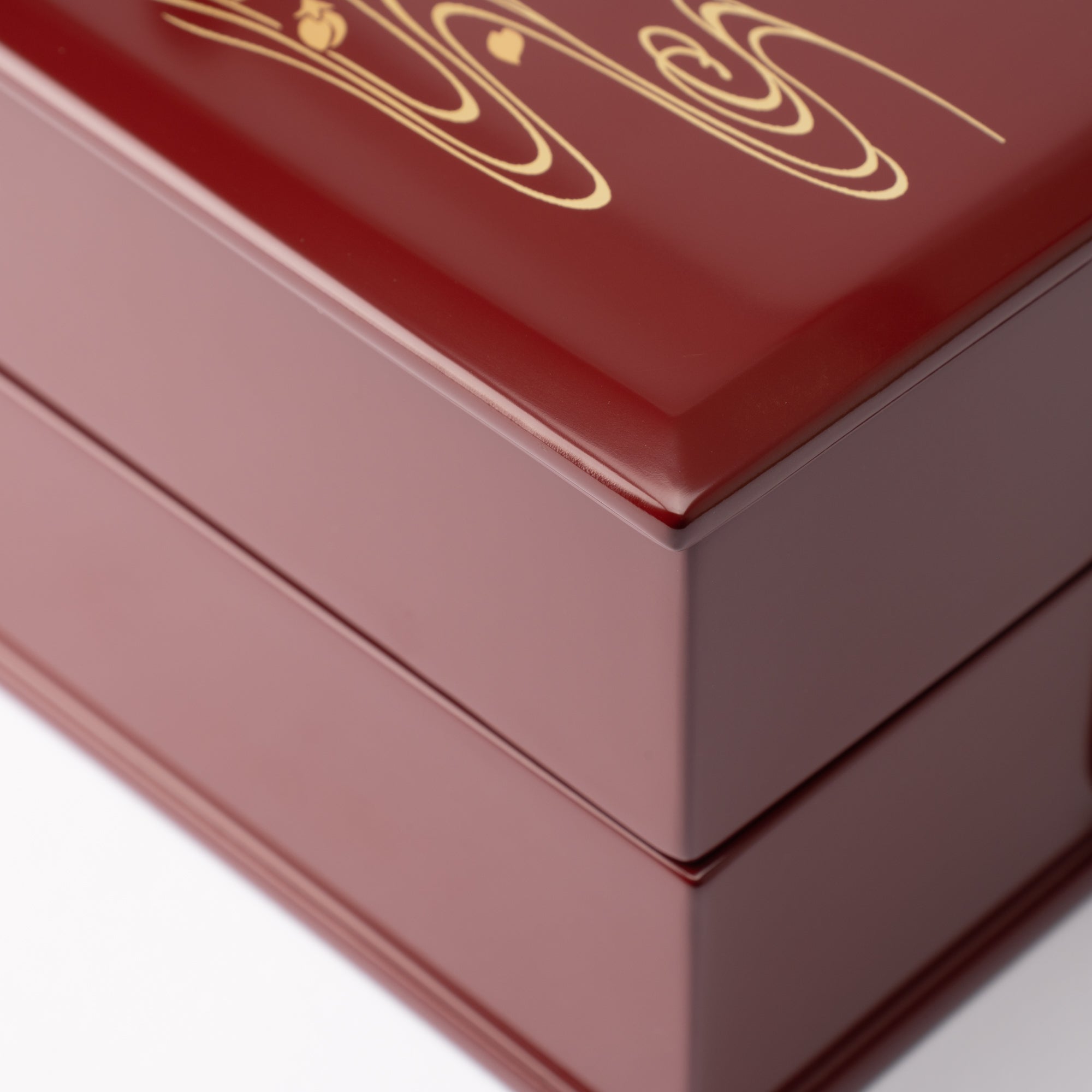
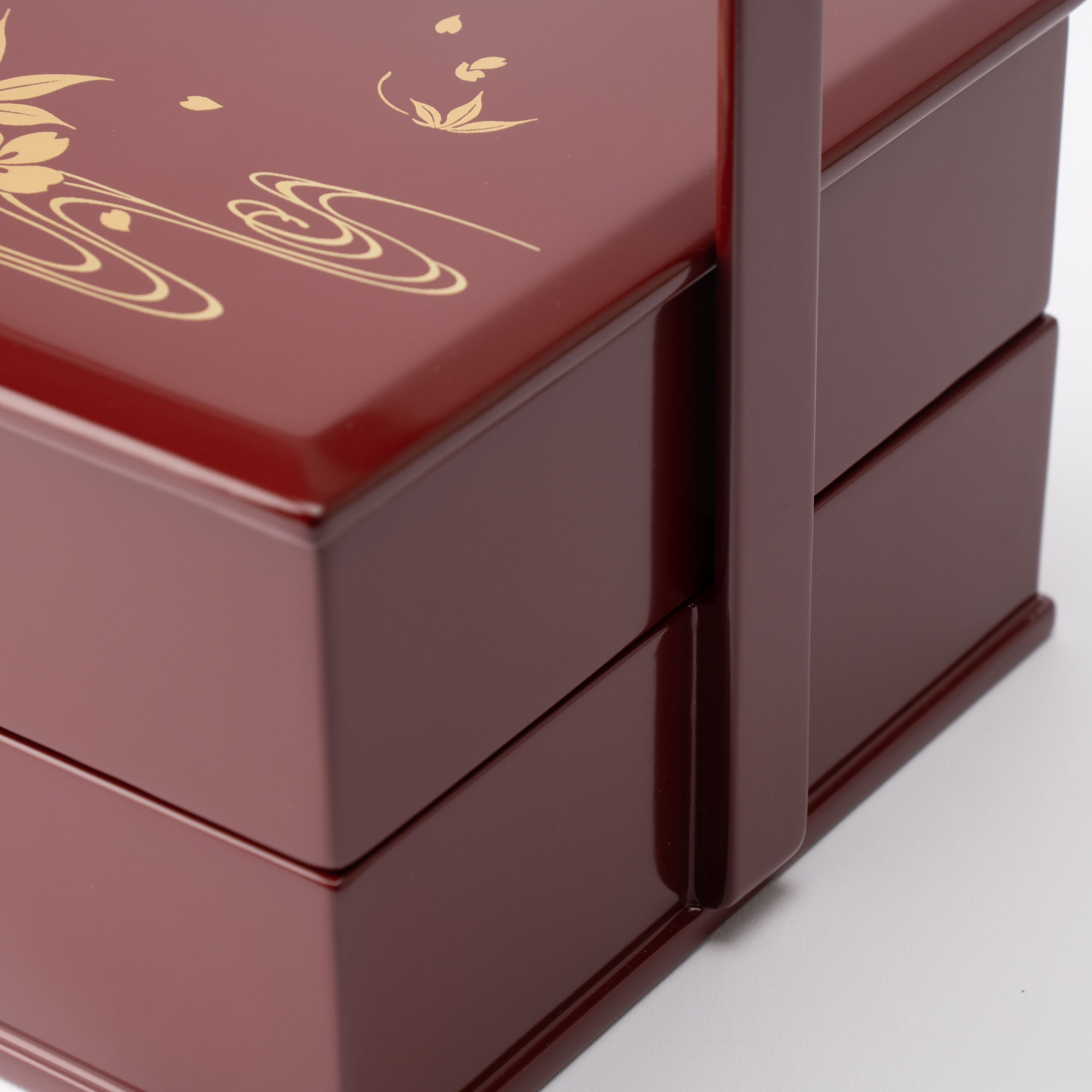
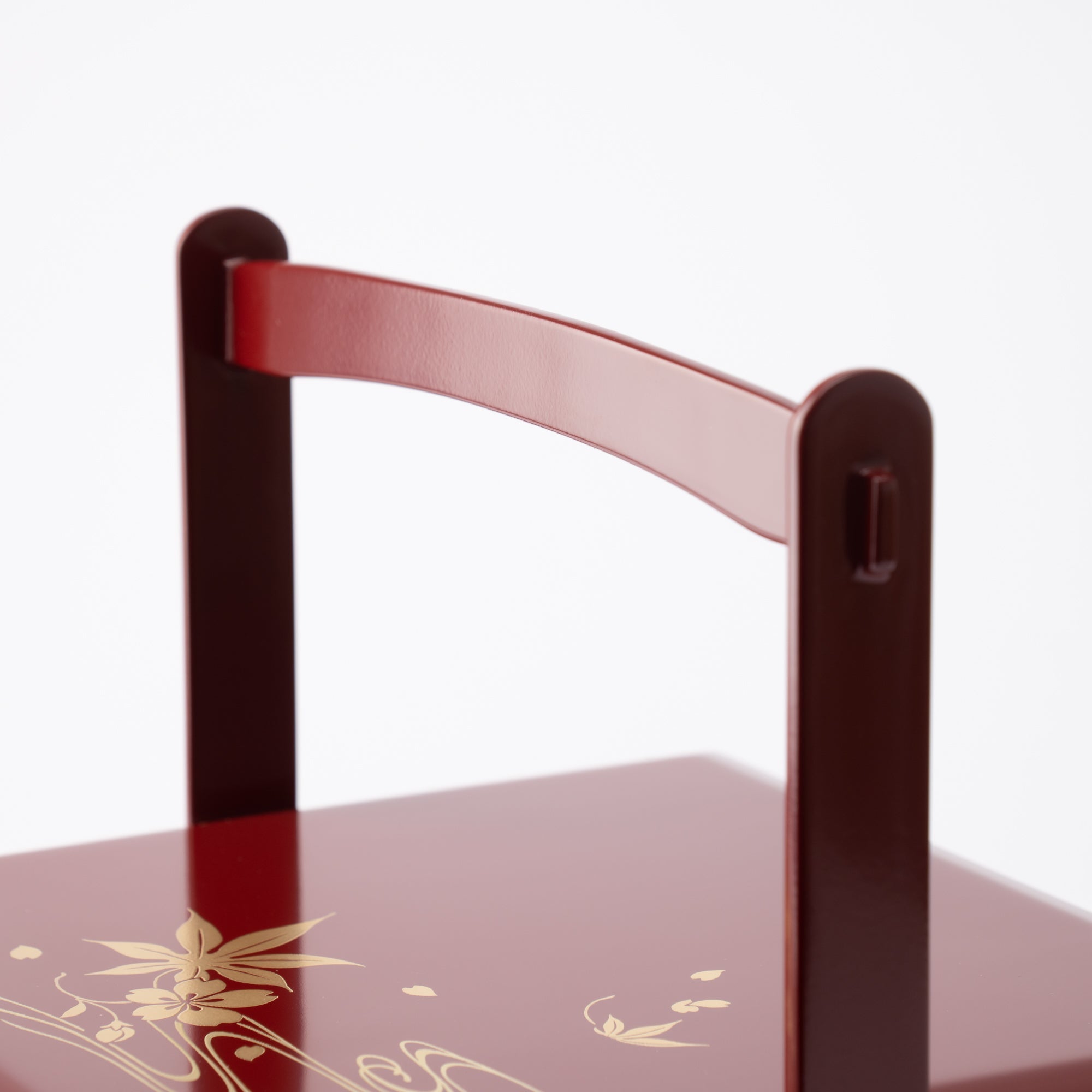
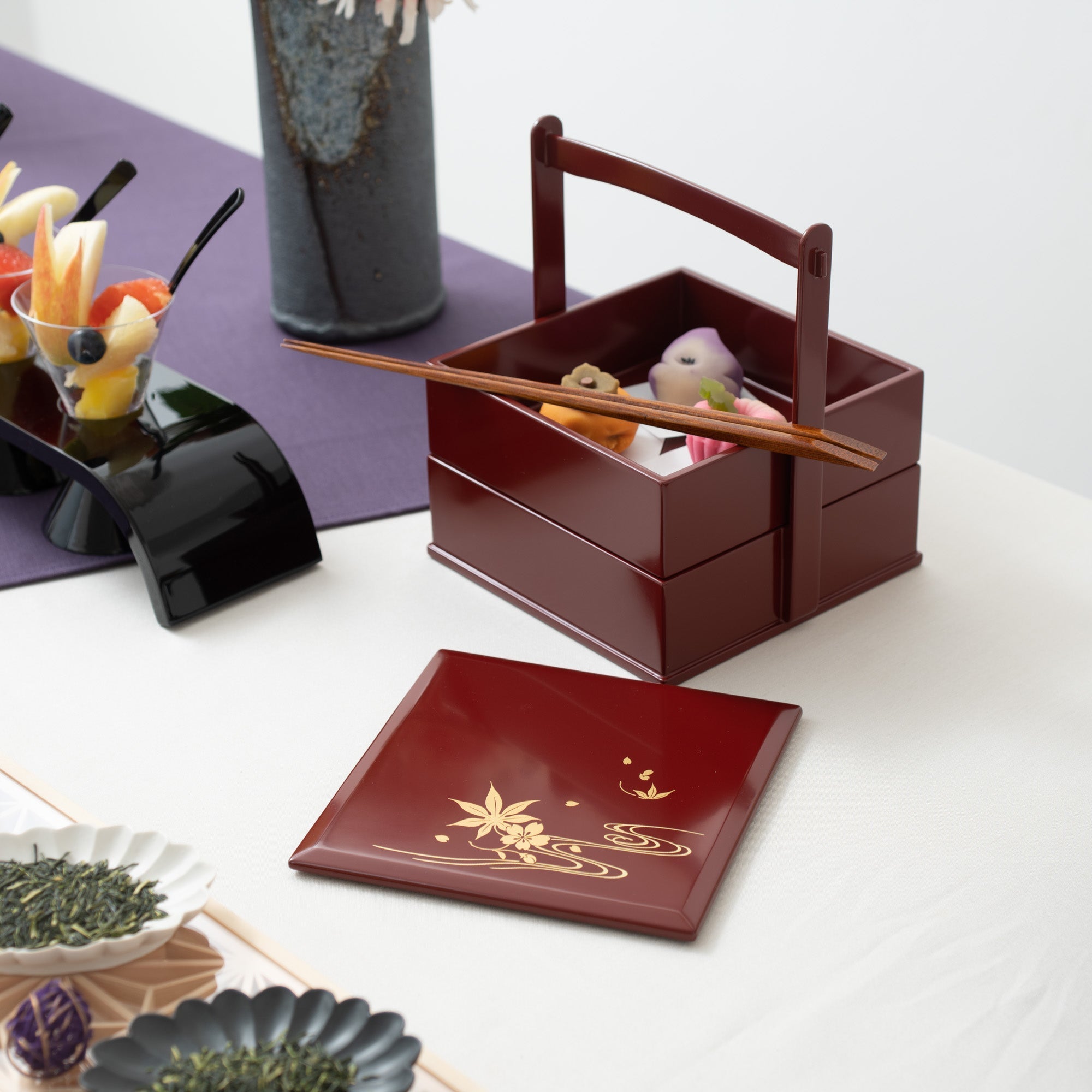
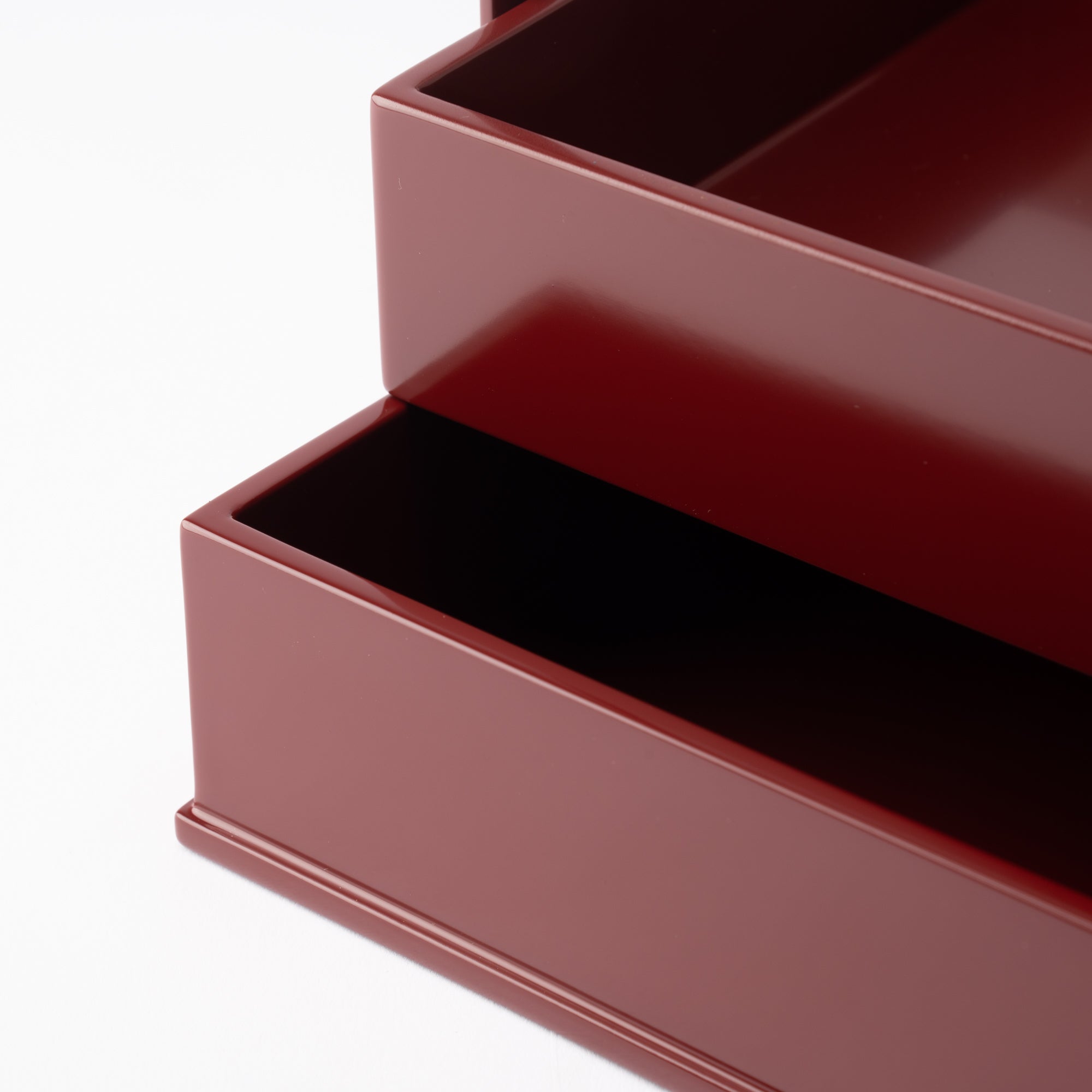
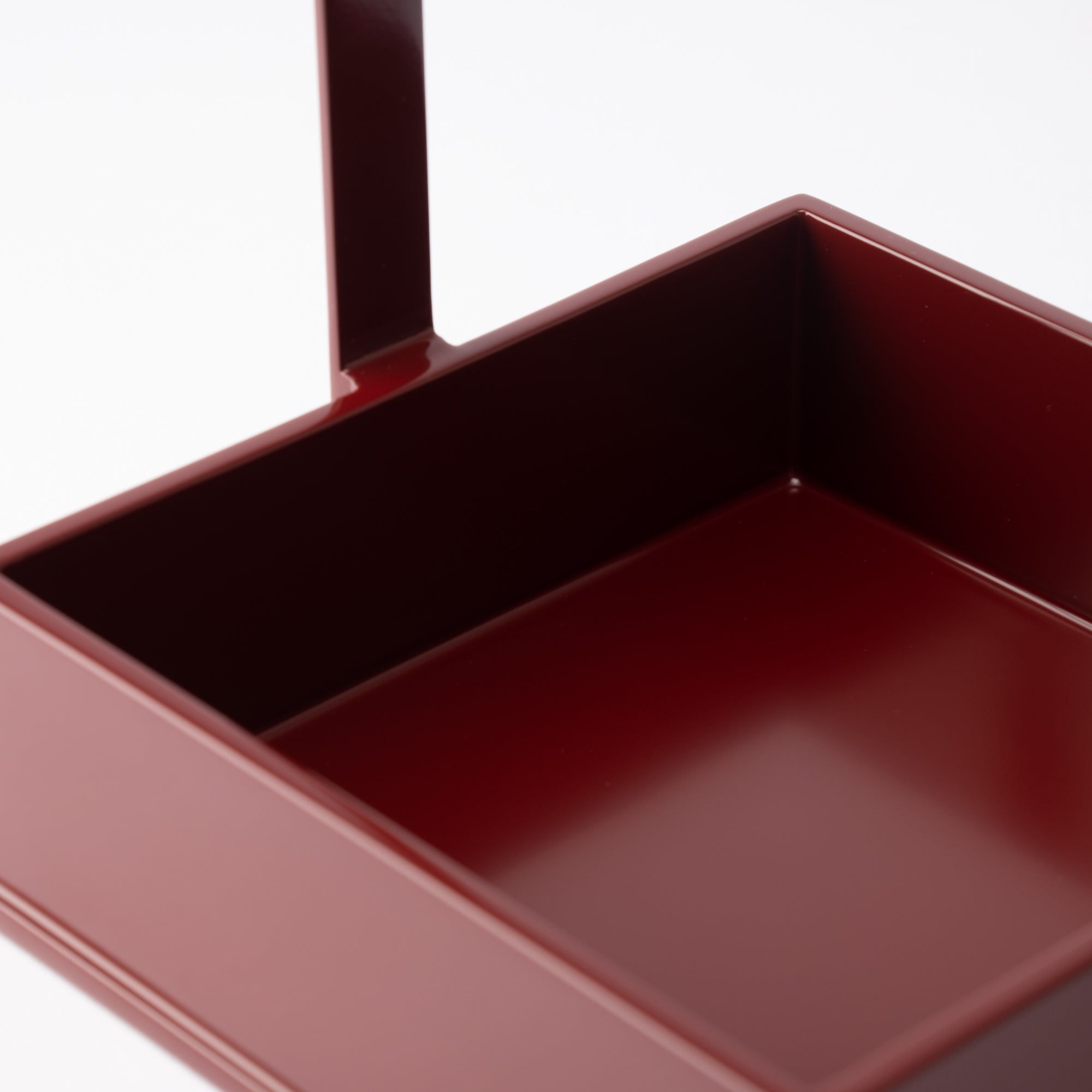
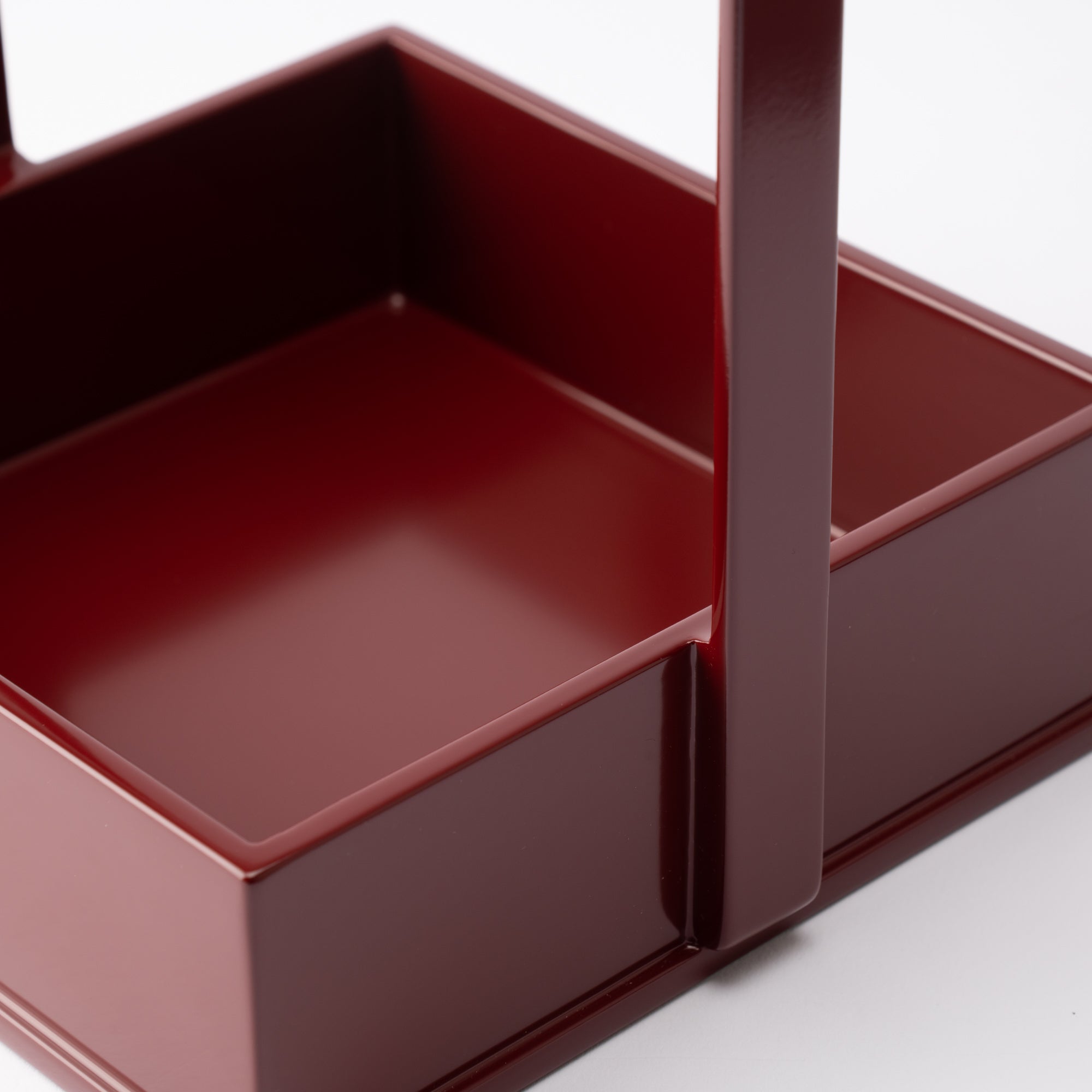
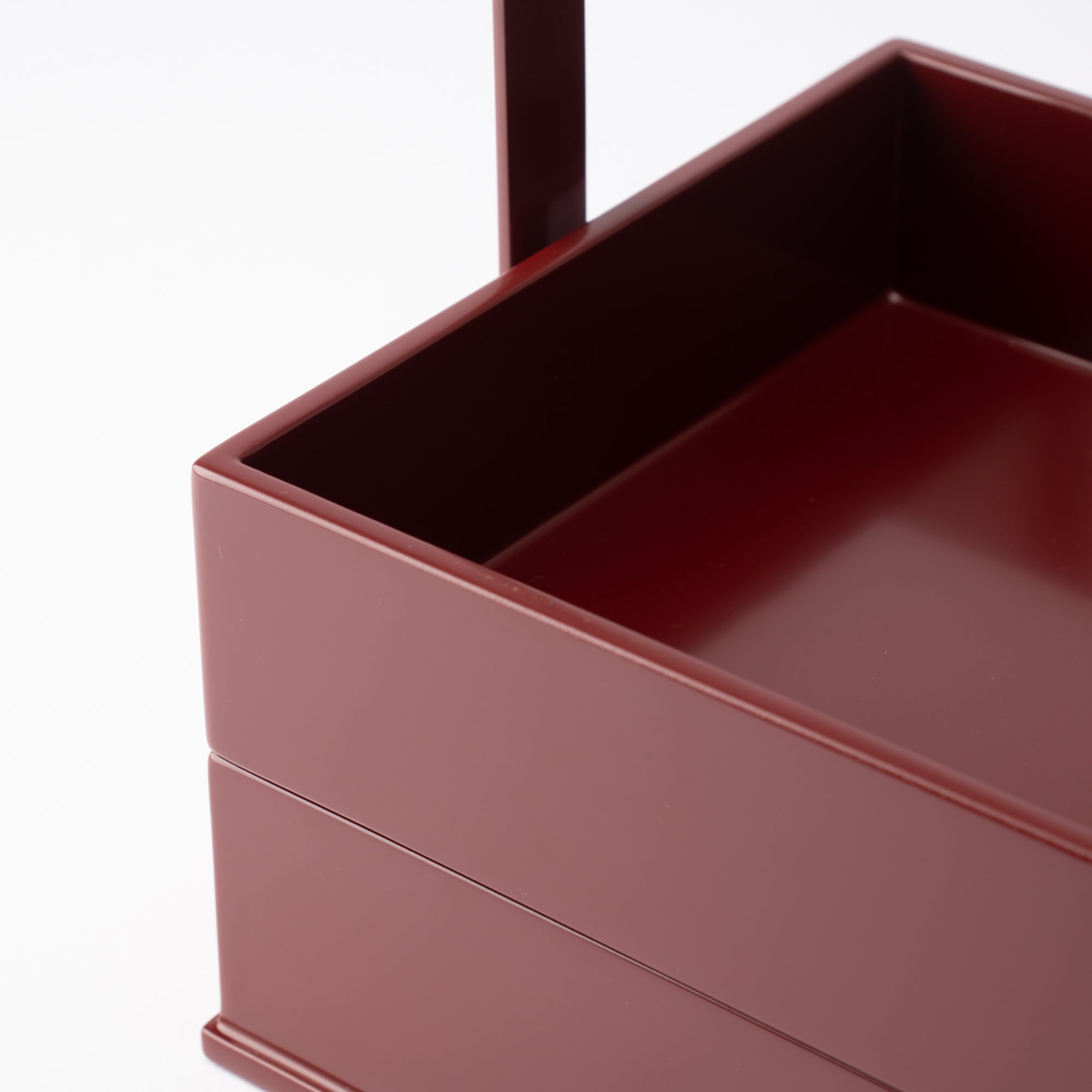
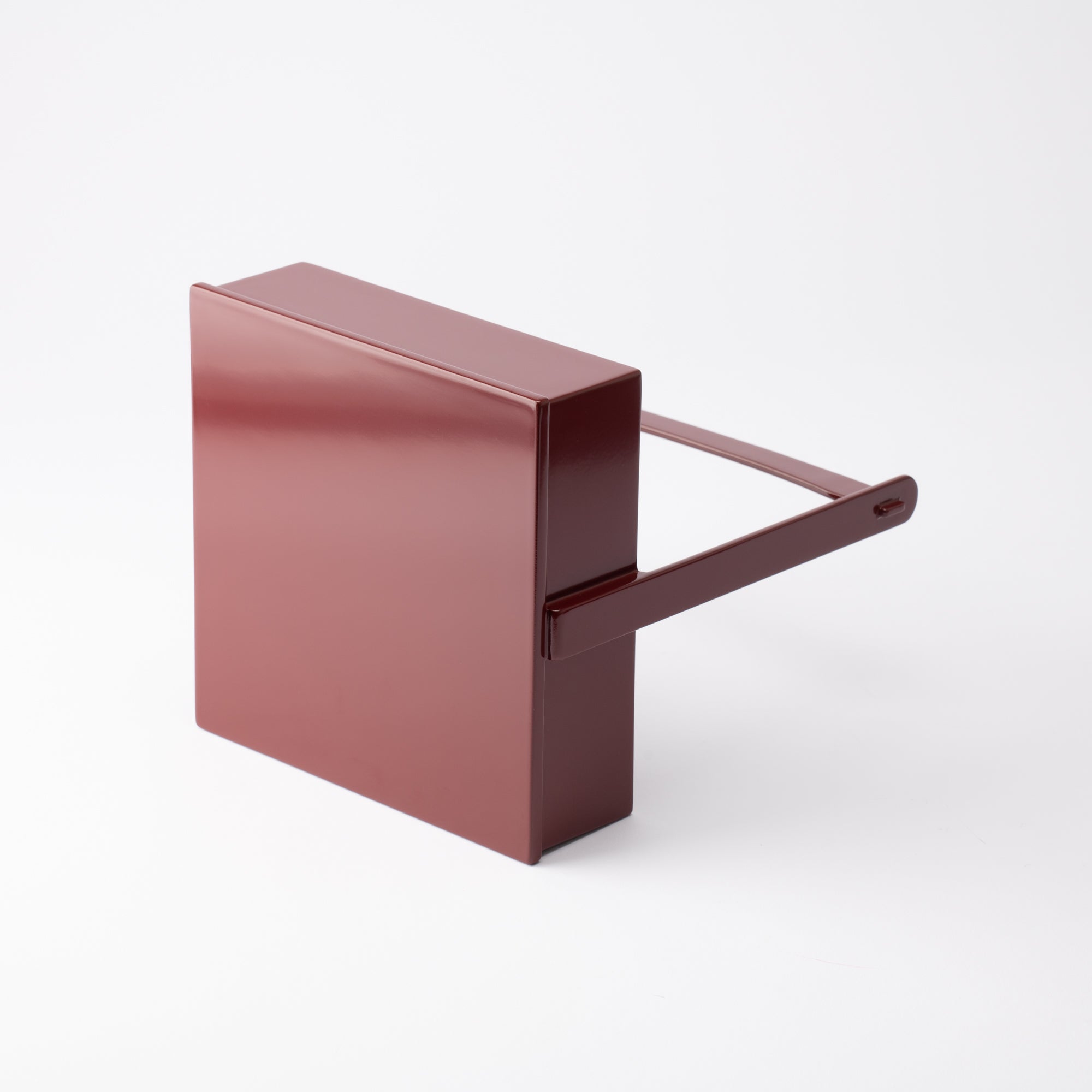
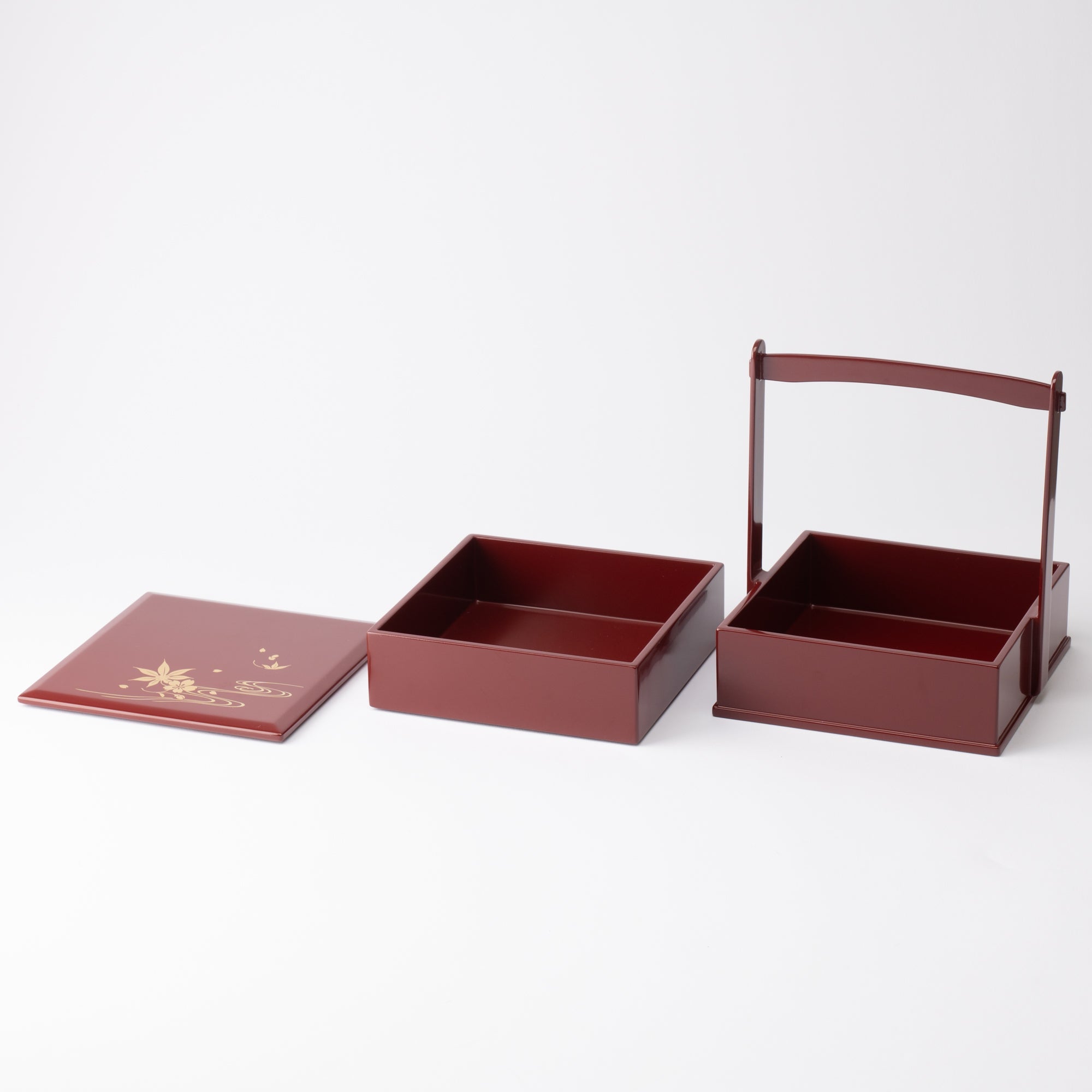
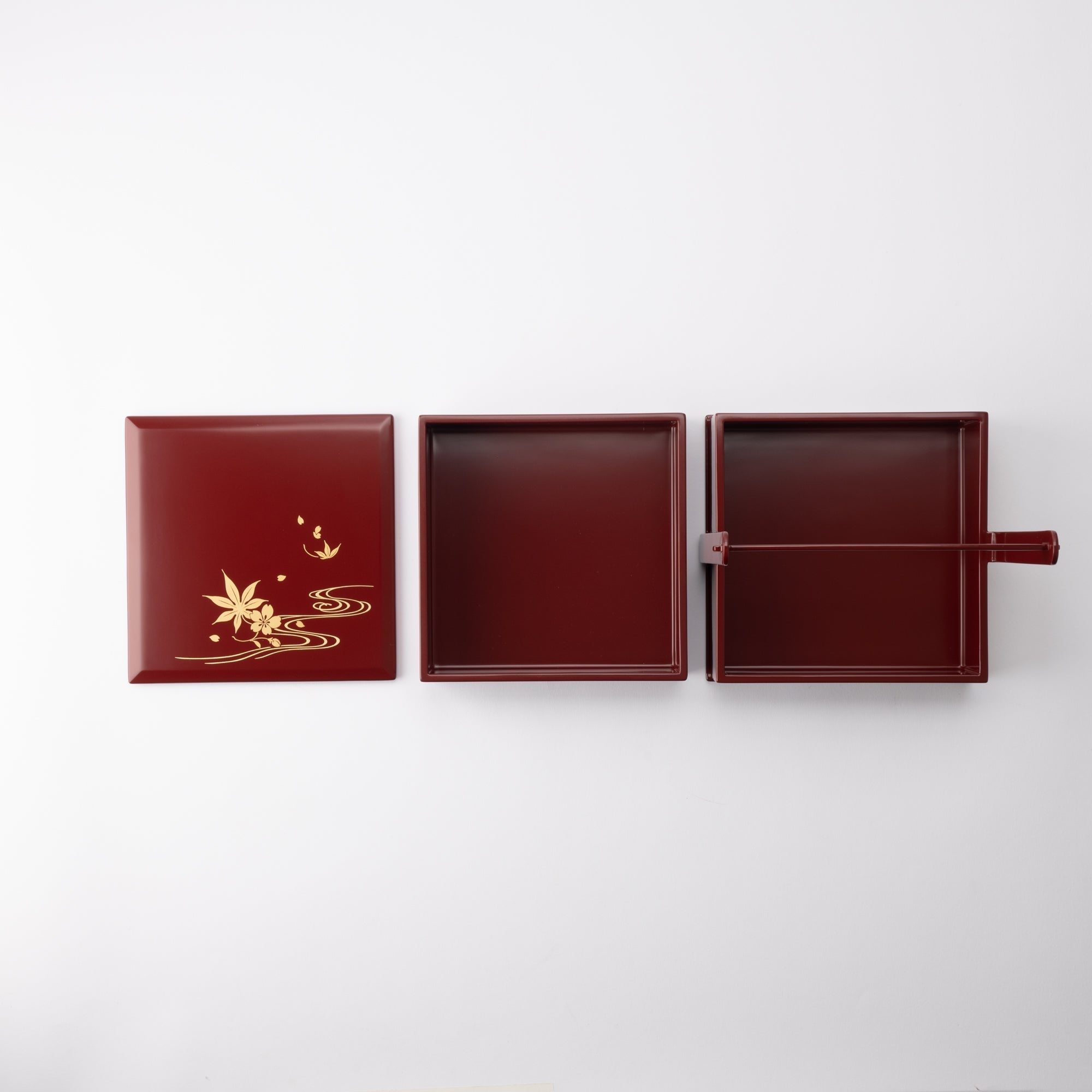
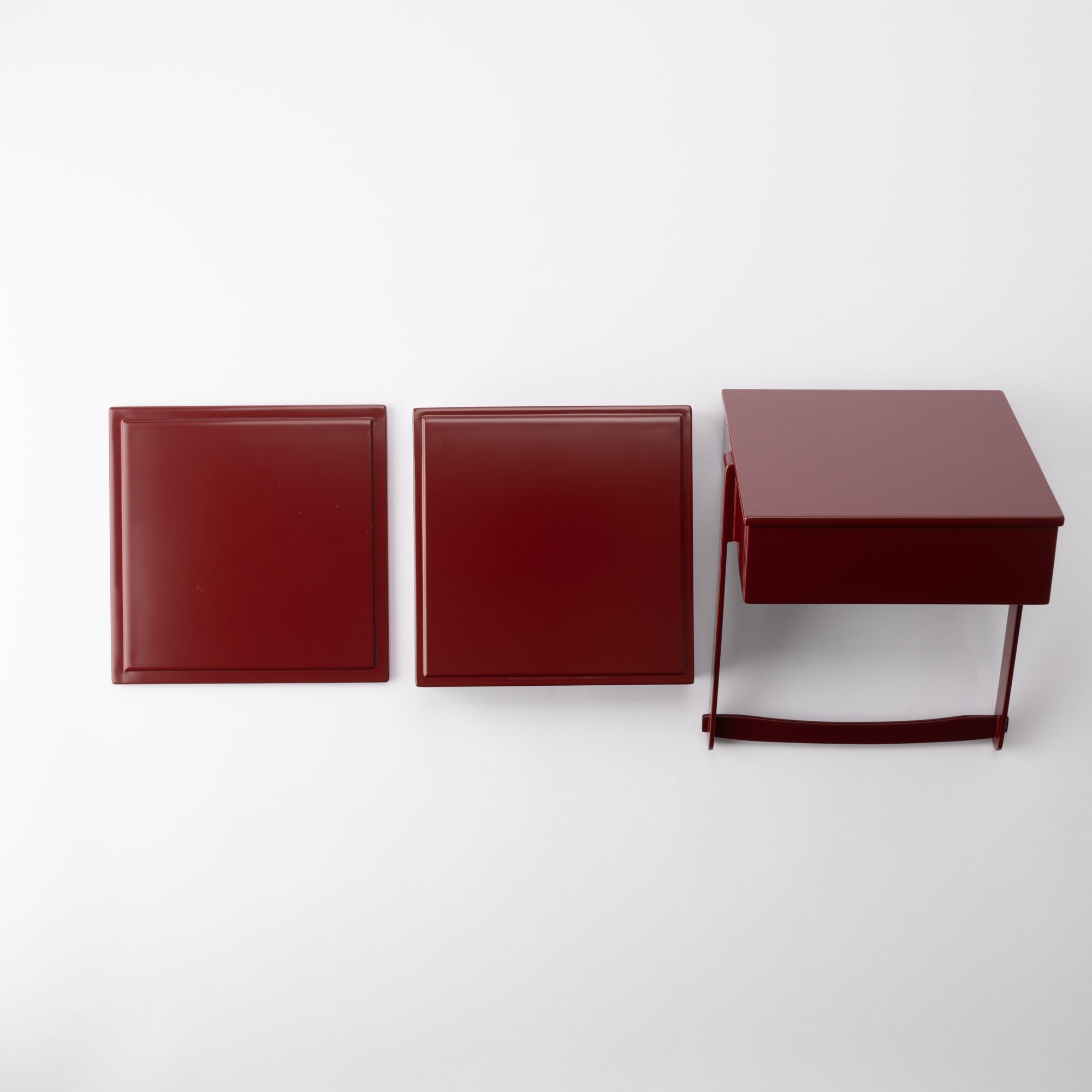
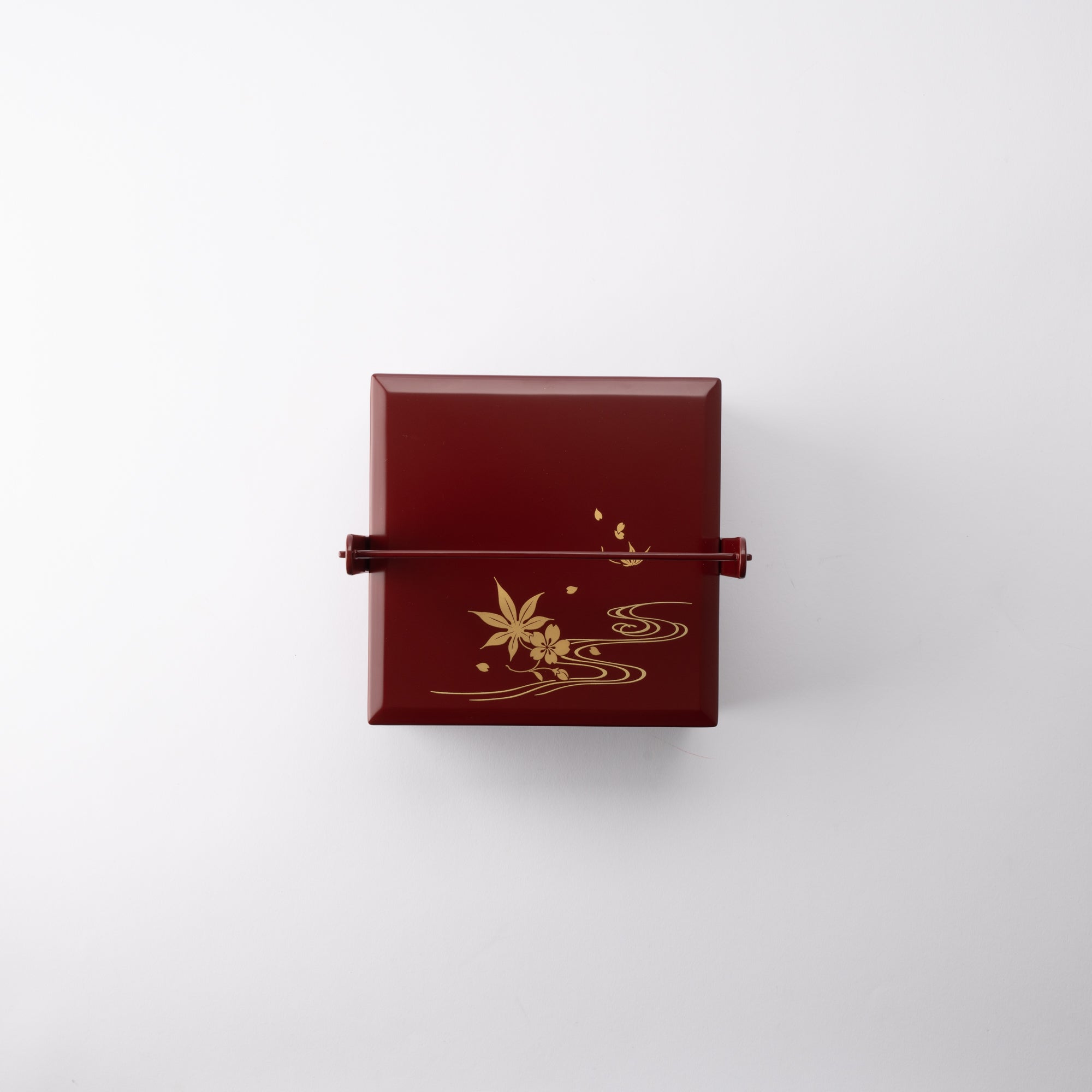
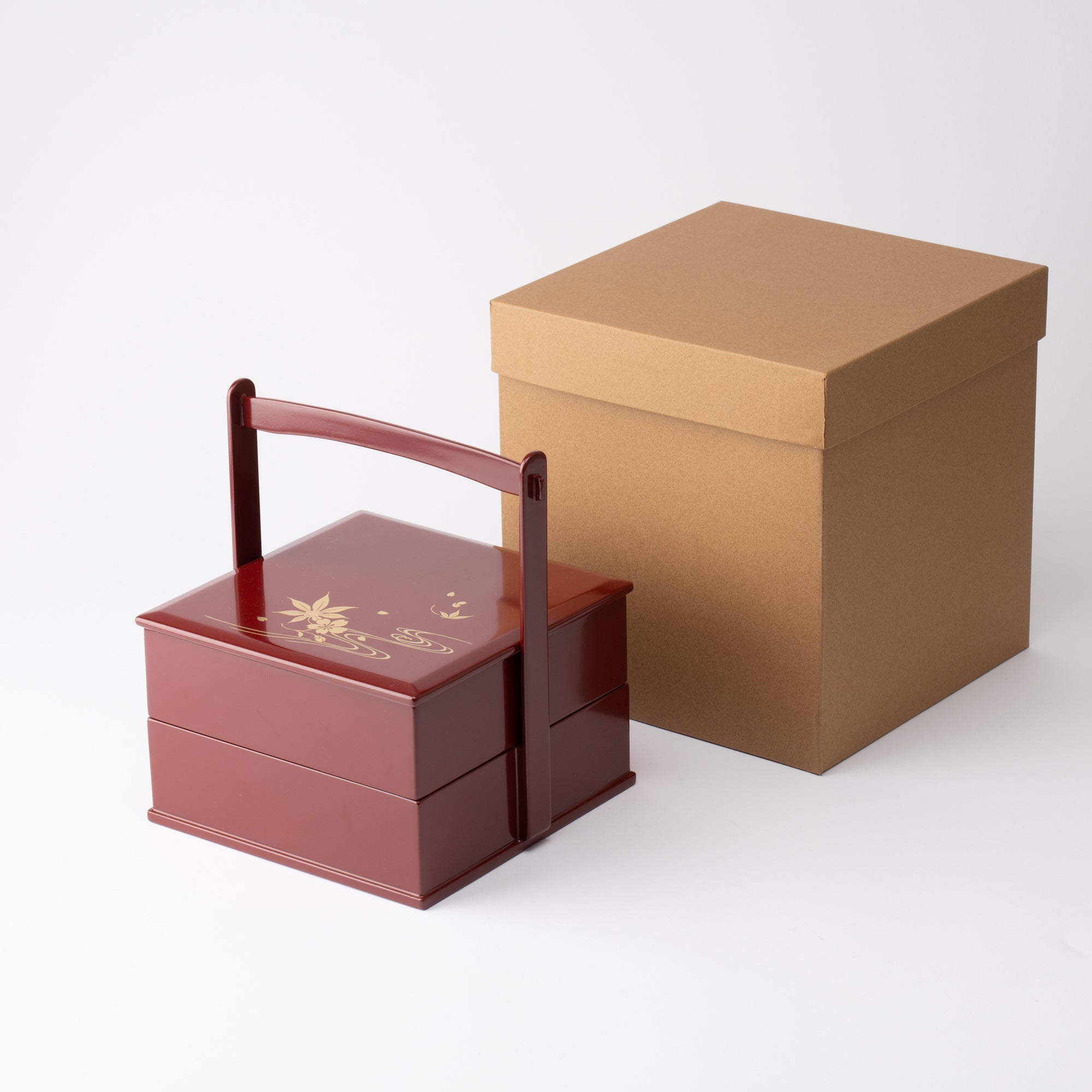
Red Running Water Echizen Lacquerware Two Tiers Jubako Bento Box with Handle
Estimated Shipping Widget will be displayed here!
This two-tiered Jubako Bento box is convenient for carrying around. The chic red color with a gold-painted pattern expresses graceful elegance.
The pattern depicting cherry blossoms in spring and autumn leaves in fall is called the "Shunju (Spring and Autumn)" pattern. This design can be used regardless of the season, overlaying the wonderful sentiment that spring and autumn come at the same time, which is impossible to achieve in reality.
It is recommended for special events or when inviting guests, as it renders the table a gorgeous and traditional Japanese atmosphere.
In Japan, it is common to eat a festive dish called "Osechi" at New Year's, which is often served in Jubako. You can carry Jubako around to the house where the gathering takes place on the New Year's day. You can also take it with you when you eat outside, such as for "Hanami"(cherry-blossom viewing).
To clean, wipe it with a wet cloth when it gets dirty. It can be quickly rinsed with water, but please make sure to wipe it dry thoroughly.
Echizen lacquerware originated around the city of Sabae in Fukui Prefecture, in the northern part of Japan. Known for its subdued luster and elegant beauty with a history going back more than 1,500 years.
Echizen lacquerware has developed techniques for product diversification and mass production in response to changing lifestyles and market needs. Echizen lacquerware is easy to use, durable, and beautiful, and is loved not only by households but also by cooking professionals, accounting for more than 80% of all lacquerware for the food industry and commercial use in Japan.
PRODUCT DETAIL
- Quantity: 1
- Dimension: [Excluding handle] 17.3cm(6.8in) × 17.3cm(6.8in) × H11cm(4.3in)
- Material: Wood
- Coating: Lacquer and Urethane
- Origin: Made in Japan - Echizen Lacquerware
Choose options






















